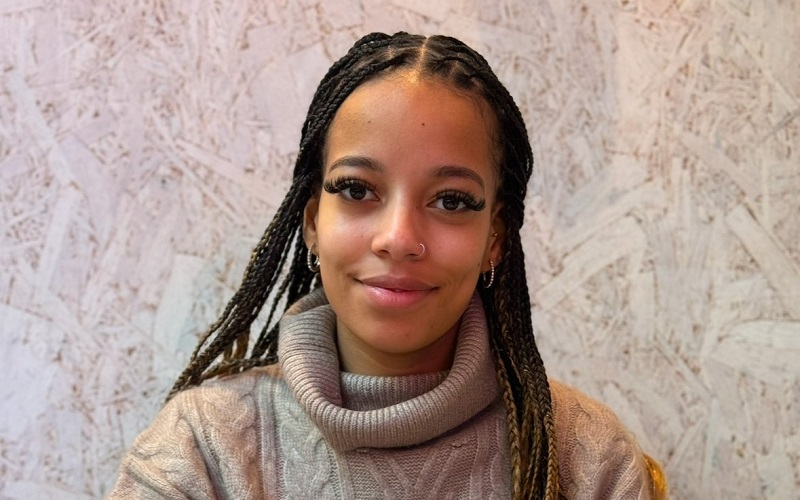
Venus began struggling with her mental health in primary school, where she was described as ‘extremely shy’ and spent a lot of time with the school counsellor.
She explained: “By secondary school, I was overwhelmed by meetings with social workers and pastoral staff while trying to hide what was going on at home.
“I was bullied, my self-harming escalated, and I developed disordered eating. I moved schools often, trying to fit in and mask my struggles, and having an unsettled life at home.
“CAMHS services felt limited and confusing, and I struggled to get the help I needed.”
Things became unmanageable when Venus stopped attending school and, following an overdose, she was sectioned and admitted onto a psychiatric ward for the first time. This began years of inpatient treatment across different hospitals, including acute wards, PICUs, and low secure units.
“I missed my GCSEs and A-levels and felt like my life was falling apart,” she said.
“A turning point came when I was admitted to Cygnet Bury Forestwood. Though being really far from home and on a section was difficult, it was the first place where I truly felt involved in my care. I could decorate my room, review my care plans with staff and was encouraged to pursue education.
“I even started a university course before I turned 18, with staff taking me on leave to a few lectures.”
After being discharged, Venus had a few relapses and hospital admissions as she struggled with the grief of losing her brother.
“Being back in the community without him was incredibly difficult,” she said. “However, the support I received at Cygnet Bury Forestwood with group activities like swimming, trips out, education, and therapy, helped me build skills and discover new interests, which gave me a foundation to keep going.
“Now, I live independently with my dogs, work full-time, and am looking into Masters programmes. I wouldn’t be where I am today without the care I received at Cygnet.”
Venus has now begun working for the Lived Experience Network as an Expert by Experience (EByE)– someone who has personal experience of using or caring for someone who uses health, mental health and/or social care. She will be supporting people hospitalised due to their mental health at Cygnet Health Care services.
She will use her experience to talk with current service users and share their feedback with senior staff so that necessary changes can be made to ensure the service provides the best care to those who need it.
Venus heard about the EbyE role through Raf Hamaizia, Cygnet’s EbyE lead. He encouraged her to do some shadow visits with other EbyEs across Cygnet services and Venus knew it was something she wanted to do full-time.
She began her EbyE journey by visiting Cygnet Delfryn Lodge, a high support inpatient rehabilitation (level 2) service for women who have severe and enduring mental illness. She now also visits Cygnet Bury Dunes, Cygnet Salford Lodge and starting at Cygnet Nield House.
“I want to create meaningful change every single day.
“My main priority is to listen to service users and work with them to improve the service in ways that are meaningful and focused on helping them achieve the best possible outcomes in their recovery.
“I also see myself as the bridge between hospital managers and patients, ensuring that service users feel heard while also providing peer support based on my own lived experience.”
On why the role of an EbyE is so important, Venus added: “It’s vital because we bring a different perspective. Having lived through the experience, I can spot opportunities for change that others might miss and use my insight to improve the service.
“This might involve smaller changes, like adjusting menus or activity timetables based on feedback, attending People’s Council or working on larger-scale projects.
“EbyEs are a walking example that recovery is possible and show what can be achieved with the right care. We can provide that glimmer of hope and peer support that some service users might desperately need.”
Venus said she was proud of the journey she’s been on since struggling as a child.
“Being an EbyE feels incredible,” she said. “I’m in a position where my lived experience isn’t seen as a flaw but as something valuable that I can use to help others and create change. When I look back, I realise how much I would’ve benefited from meeting an EbyE when I was in hospital.
“It can feel a bit surreal sitting on the other side of the table now, speaking to ward managers not as a patient but in a professional capacity.
“Moments like receiving a note from a service user saying, ‘Thank you for coming onto the ward Venus, you’re so inspirational,’ mean so much to me. I don’t think they realise how much that note touched me because I was once in their shoes, feeling like there was no way out.
“It’s a privilege to be in a role where I can show others that recovery is possible.”